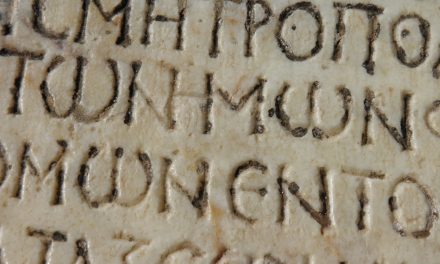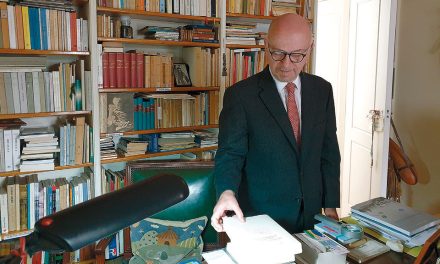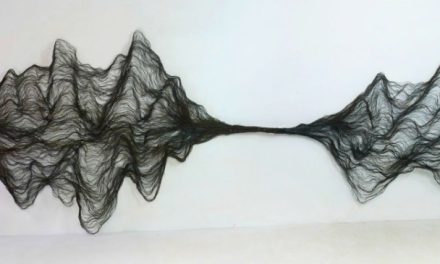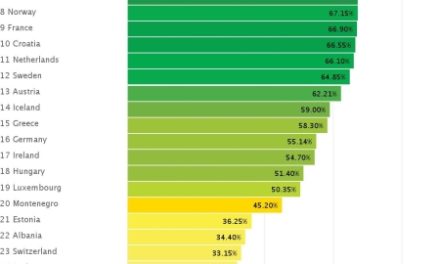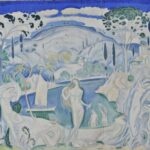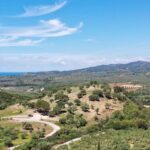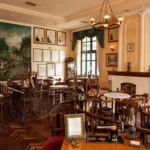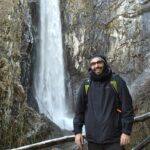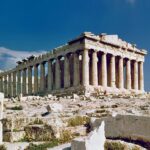Documenta, one of the world’s biggest international modern art exhibitions, has been held in the German city of Kassel since 1955. For the first time the exhibition will take place in two cities – Kassel and Athens (8.4-17.9.2017), this time under the title “Documenta 14: Learning From Athens”
“Inspiration could be found in Greece, and more specifically in Athens,” according to Adam Szymczyk, aristic director, who believes that the Greek problems will soon become world problems.
The different locations and divergent historical, socioeconomic and cultural backgrounds of Kassel and Athens inspire and influence the individual works of art. Artists have been invited to think and produce within the context of the emerging dynamic relationship between these two cities and to develop a work for each of the two locations.
The main issues of this year exhibition are the refugee crisis, the financial crisis, restitution problems and censorship, Annie-Claire Geisinger, Communications Coordinator, said in meeting with foreign correspondents at the offices of Foreign Press Association of Greece in Athens.
The Parthenon of Books
One of the key projects of this year’s exhibition is the Parthenon of Books. The Parthenon of Books is a symbol of opposition to the banning of writings and the persecution of their authors. For the realization of this work, Argentine artist Marta Minujín and the documenta 14 team are collecting books that have now been published anew after having been banned for years. The installation The Parthenon of Books will be presented in Kassel as a replica of the temple on the Acropolis in Athens, which symbolizes the aesthetic and political ideals of the world’s first democracy. Composed of as many as 100,000 banned books from all over the world, the work will be erected on Friedrichsplatz in Kassel, where in 1933 some two thousand books were burned by the Nazis during the so-called “Aktion wider den undeutschen Geist” (Campaign against the Un-German Spirit).
 The Parthenon of Books traces its origins to an installation titled El Partenón de libros, which was realized in 1983, shortly after the collapse of the civilian-military dictatorship in Argentina, and presented the very books that had been banned by the ruling junta. After five days of exhibition, two cranes tipped the building slightly to one side, allowing viewers to remove the books and take them home. A public action devoted to returning the once-forbidden books to circulation is also being planned for the new Parthenon at the end of documenta 14.
The Parthenon of Books traces its origins to an installation titled El Partenón de libros, which was realized in 1983, shortly after the collapse of the civilian-military dictatorship in Argentina, and presented the very books that had been banned by the ruling junta. After five days of exhibition, two cranes tipped the building slightly to one side, allowing viewers to remove the books and take them home. A public action devoted to returning the once-forbidden books to circulation is also being planned for the new Parthenon at the end of documenta 14.
130 artists, 100 days, a Parliament of Bodies
More than 130 artists will display their works during the 100 days of the exhibition throughout the museums, buildings and public spaces in Athens as of early April. The exhibition will include paintings, installations, music and film festivals.
Documenta 14’s public programmes include “The Parliament of Bodies”, “34 Exercises of Freedom” and “The Open Form Societies”: “The Public Programmess refuse to be a discursive side-event attached to an exhibition. Instead, documenta 14 unfolds into a Parliament of Bodies, a performative structure that challenges not only the traditional exhibition/public program divide, but also the opposition between Kassel and Athens, North and South epistemologies, normative thinking and subjugated knowledges and practices as well as gender, sex, race, and class hierarchies.”
South as a State of Mind
South as a State of Mind is a magazine that was founded by Marina Fokidis in Athens in 2012. Beginning in 2015, the magazine temporarily becomes the documenta 14 journal, publishing four special issues biannually until the opening of the exhibition in Athens and Kassel in 2017. These special issues are edited by Quinn Latimer, documenta 14’s editor-in-chief of publications, and documenta 14 artistic director Adam Szymczyk. The journal is a manifestation of documenta 14 rather than a discursive lens through which to merely presage the topics to be addressed in the eventual exhibition. Writing and publishing, in all their forms, are an integral part of documenta 14, and the journal heralds that process. The online edition of the d14 South as a State of Mind features select content from the print magazine, as well as occasional additional commissions specifically conceived for the digital platform.
A short history of documenta
Documenta is held every five years, and presents new directions to an international audience. The first documenta, an exhibition of Western European modern art, was organized in Kassel in 1955. It was initiated by a group of art enthusiasts led by artist, art professor and curator Arnold Bode (1900-1977). Bode, who counted among those the Nazis defamed and persecuted as representatives of “degenerate art,” staged the show at Museum Fridericianum, at the time still not fully rebuilt after it was destroyed by Allies’ bombings in 1941, while it served as Hessian State Library. Their intention was to show that modern art had a significant role in the process of reconstructing German society after the Second World War. In the course of thirteen iterations of documenta that have taken place until today, the exhibition has turned into a place of major debates on contemporary culture and its current sociopolitical context.
Main source: Athens to co-host German Documenta 14 exhibition; Read more: An Interview with the Head of Artistic Office of documenta 14 in Athens, Marina Fokidis
Online accreditation for press and professionals is already open and closes on February 27, 2017. Press accreditation affords free entrance to all venues during the press and preview days in Athens and Kassel.
Watch the video: Featuring Artists Irena Haiduk, Claire Pentecost and Angelo Plessas. Moderated by Dieter Roelstraete, Curator | Documenta 14. A roundtable discussion devoted to Documenta at Expo Chicago galleries in Chicago, US (Sep 23, 2016). Dieter Roelstraete moderates a conversation between participants from past documenta editions and artists taking part in the upcoming 14th iteration. Discussing the exhibition’s temporary relocation to the crisis-stricken Greek capital in particular, this panel focuses on large-scale exhibition making and globalized art practice in relation to intensifying socio-economic instability and uncertainty.


